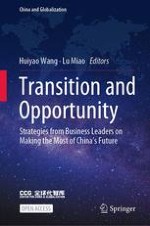This book is open access under a CC BY-NC-ND 4.0 license.
Multinational corporations (MNCs) have long played a crucial role in the Chinese economy. This role is one that is set to continue in the post-pandemic era as China works to transit to a high-quality growth model that is more sustainable and innovation-driven. With global experience and front-line involvement in some of the most pressing economic, technological, and environmental issues of our day, leading figures in MNCs and chambers of commerce are well placed to share insights that could potentially contribute to policymaking and development strategies so that everyone can “make the most” of China’s future.
This collection of essay aims to share these invaluable insights with a wider audience, offering balanced and diverse perspectives from companies and advocacy groups working on a range of issues related to China’s domestic development, international economic cooperation, and China-US competition. These insights are useful not only for the wider business community, but also for academics, policymakers, students, and anyone trying to deepen their understanding of this exciting period of “transition and opportunity,” and make the most of China’s bright future.
